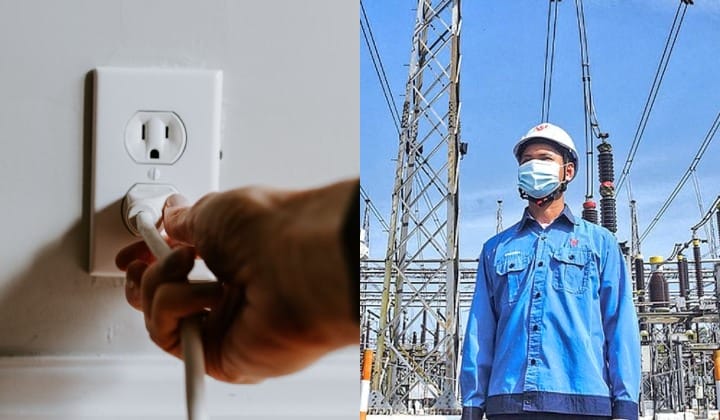How To Do A Good Introduction During A Job Interview?
Here are a few tips and tricks up an employer’s sleeves when it comes to job interviews.

Subscribe to our Telegram channel for the latest stories and updates.
Job interviews are scary. If you’re not prepared, that is.
But if you’re ready and prepared, it can get a little less scary. One of the ways for you to prepare yourself is to give a good introduction about yourself to your future employer.
READ MORE: Lelaki Ini Kongsi Jawapan Untuk ‘Tackle’ Majikan Ketika Temuduga Kerja
Even though the question looks easy, the “Tell me about yourself” part is actually kind of crucial and lets your employer get a hold of a good or bad first impression about you.
Based on a Twitter user’s (@nasriqul) experience in hiring candidates for some open positions, here are his few tips on giving the best introduction for a job interview.
1. Directly Relevant To The Work
One of the best job interview introductions is when the candidate only says what’s necessary instead of needless information.

The important points that you need to touch on are your name, age, where do you live, the position you’re applying and any experience or skills for the position that you have.
While mentioning where you live, Nasqirul also said that it is good to note how far is it from the said office and what kind of transport do you use. These small details are actually convenient for your employers to know so that they don’t have to worry about the risks of you coming to work.
For example, he explained that the longer the distance and time it’ll take for you to reach the office, the higher the risk of accidents, tardiness, natural causes (floods) or more it is for you and your employer would have to cover those costs. Hence, the nearer it is, the lower the risks.
2. What Position You’re Applying For
While on the introduction, mention directly what position you’re applying for.
It is also good to mention that you know what the position is about and what does the intended company do, such as what products they’re selling.
This shows your potential employer your resourcefulness: your effort to be well-versed with the company’s background before an interview.
It’s sort of like a bonus point to impress the employer, “Oh, he did a bit of homework on us beforehand”.
3. Skills and Experience
You should also mention your relevant skills and experience, preferably with specific examples from your previous work experiences and how they can translate to the new potential job.

For example, “I have had XXX years of experience working in the XXX department” or “I am familiar with the tasks in the XXX department because I have worked in the XXX field for a period of XXX years”.
If the employer is intrigued by these statements, they’ll for sure ask some follow-up questions to test whether what you’re saying is true. Some examples of any follow-up questions they may ask according to Nasqirul are
- What did your past company sell?
- How did they do the packaging?
- How do you get sales?
- Did you enjoy it or not?
4. Previous Jobs
After the skills, you can mention some of your previous jobs or projects you have worked on before.
If the employer is interested (this depends on some employers), they could ask you which one of your past jobs did you enjoy the most and why. This is to show the tendency of the person to what kind of job he/she likes and their placement in the company.
For instance, Nasqirul explained that a situation that doesn’t match is when you’re working in operations but are passionate about marketing because you love to deal with people. The tendency and the placement of that person is a little bit tricky.
When asked why did you leave your past job, Nasqirul advises not saying “I am looking for a new experience”. It could be a red flag for some companies. However, this does depends on the hiring personnel.
5. The Reason You’re Applying For The Job
A good conclusion to end your introduction would be you telling them why you’re interested in the job and why are you considering their company.

Again, Nasqirul suggests not to say “I am looking for a new experience” because in his defense, for some people this tells them that you’re a person who jumps jobs easily and are not loyal.
Instead, the answers that you could opt for when asked about these sensitive questions could be because of the economy, family reasons and others.
However, different companies have different ways of filtering out their interview candidates, so these might not be the most accurate tips for some companies.
READ MORE: What To Ask Potential Employers At The Hiring Interview
These tips do not guarantee you the job but they do help you to highlight important questions that your potential employer might want to know. Hence, it’s good to get yourself well-prepped for questions like these.
Remember, first impressions go a long way.
Here’s the tweet if you wanna know more.
Hari jumaat ialah hari paling banyak kerja ofis work
— Nasriqul Afiq (@nasriqul) March 11, 2022
N Hari interview pekerja
Out of 13 yg dtg, 2 orang kitorang decide untuk hire terus on the spot just based on their introduction
Here are the key point to make sure you can give the same as impression as them
Share your thoughts with us via TRP’s Facebook, Twitter, and Instagram.








